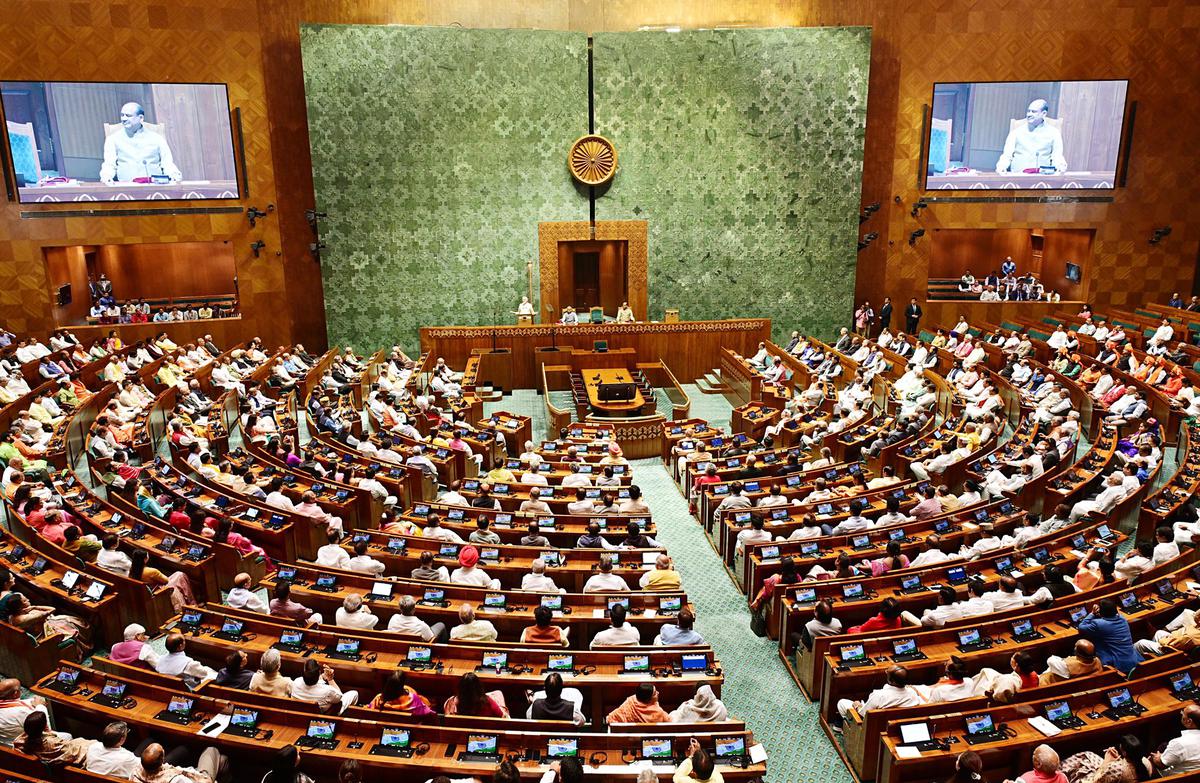Context:
The Monsoon Session of Parliament, initially scheduled to conclude earlier, will now run for a full month, from July 21 to August 21. This extension, approved by President Droupadi Murmu, adjusts the session’s duration to accommodate parliamentary business, with a break on August 13 and 14 for Independence Day celebrations.
Parliamentary Sessions:
- Types of Sessions: The Indian Constitution does not specify the exact number of sessions Parliament must hold each year, but it mandates that there should not be a gap of more than six months between two sessions. Conventionally, there are three
Main sessions:
- Budget Session: Typically, the longest, held from February to May, focusing on the annual budget.
- Monsoon Session: Usually from July to September, dealing with general legislative business.
- Winter Session: Generally, from November to December, also for legislative and deliberative work.
- Summoning: The President of India summons each House of Parliament from time to time. This process officially calls the members to convene for a session.
- Prorogation: This means the termination of a session but not the dissolution of the House (in the case of Lok Sabha). The President also has the power to prorogue a session. Prorogation brings a session to an end, but the House itself continues to exist. All pending notices (except those for bills) lapse.
- Dissolution: This applies only to the Lok Sabha and marks the end of its term, leading to new general elections. The Rajya Sabha, being a permanent body, is never dissolved. Dissolution terminates all pending business (bills, motions, resolutions) unless specific provisions apply (e.g., bills passed by both Houses but awaiting President’s assent).
- Constitutional Provision: Article 85 of the Indian Constitution empowers the President to summon, prorogue, and dissolve the Lok Sabha.
- Role of the President in Summoning Sessions:
- The President of India holds the constitutional authority to summon both Houses of Parliament. This power is a crucial aspect of the President’s legislative functions.
- While the President formally summons the sessions, this power is exercised on the aid and advice of the Council of Ministers headed by the Prime Minister (as per Article 74), reflecting India’s parliamentary system where the executive (Cabinet) largely dictates the legislative agenda.
- This demonstrates the interplay between the Executive and Legislative branches, where the executive initiates the process for the legislature to convene and perform its duties.
Parliamentary Business and Legislative Process:
- Legislative Function: Enacting laws.
- Deliberative Function: Discussing issues of national importance.
- Oversight Function: Holding the executive accountable through questions, debates, and motions.
- Financial Function: Approving budgets and controlling public expenditure.
- Constituent Function: Amending the Constitution.
- Electoral Function: Participating in the election of the President and Vice-President.
- Judicial Function: Impeaching the President, removing judges.
- Legislative Process: This involves the journey of a bill from its introduction in either House, through various stages of debate and amendment, to its passage by both Houses and finally receiving the President’s assent to become an Act.
Tools for Accountability:
- Parliamentary sessions are vital for ensuring accountability and policymaking. Key procedural devices include:
- Question Hour: The first hour of every parliamentary sitting, where members ask questions to minister on various matters.
- Zero Hour: An informal device where members can raise matters of urgent public importance after Question Hour without prior notice.
- Various Motions: Such as Calling Attention Motion (to draw attention to urgent matters), Adjournment Motion (to discuss a definite matter of urgent public importance, leading to interruption of normal business), and the crucial No-Confidence Motion (to test the confidence of the Lok Sabha in the Council of Ministers).

